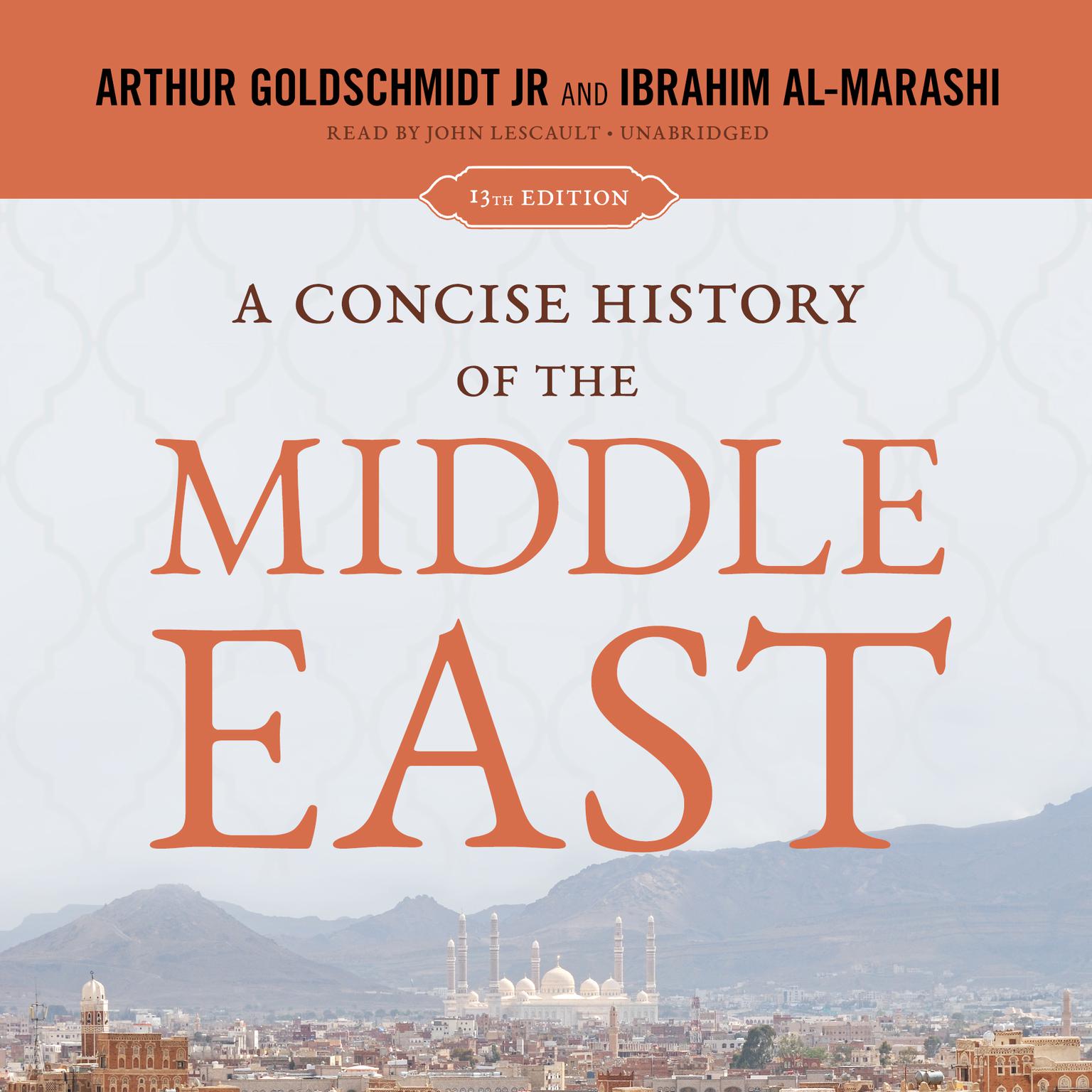 Play Audiobook Sample
Play Audiobook Sample
A Concise History of the Middle East, 13th Edition Audiobook
 Play Audiobook Sample
Play Audiobook Sample
Quick Stats About this Audiobook
Total Audiobook Chapters:
Longest Chapter Length:
Shortest Chapter Length:
Average Chapter Length:
Audiobooks by this Author:
Publisher Description
A Concise History of the Middle East provides a comprehensive introduction to the history of this region.
Spanning from the pre-Islamic era to the present, it explores the evolution of Middle Eastern institutions and culture, the influence of European colonialism and Western imperialism, regional modernization efforts, the struggle of various peoples for political independence, the Arab–Israel conflict, the reassertion of Islamist values and power, the issues surrounding the Palestinian Question, and the Middle East following 9/11, the 2011 Arab uprisings, and the regional crisis that erupted after October 7, 2023.
The thirteenth edition has been fully revised to reflect the most recent events in, and concerns of, the region, including its future in the face of climate change and challenges in Iraq and developments in the Israeli-Palestinian conflict.
In addition, the important role of Middle Eastern women in the history of the region is woven into the narrative. New parts and timelines will help listeners grasp and contextualize the long and complicated history of the region.
With updated biographical sketches and new concluding chapters, this book remains the quintessential text for students of Middle East history.
Table of Contents
1. Introduction
Part I. The Rise of Islam to the Zenith of Abbasid Power 2. The Pre-Islamic 3. Muhammad and the Rise of Islam 4. The Early Arab Conquests 5. The High Caliphate
Part II. The Turkic Empires from the Seljuks to Ottomans 6. Shi’a and Turkic Empires 7. The Crusader and Mongol Invasions 8. Islamic Civilization 9. Firearms, Slaves, and Empires
Part III. European Incursions and the Nationalist Reaction 10. European Interests and Imperialism 11. Westernizing Reform in the Nineteenth Century 12. The Rise of Nationalism
Part IV. World War I and its Aftermath 13. Arab Nationalism and the First World War 14. Modernizing Rulers in the Independent States 15. Egypt and the Fertile Crescent Under European Control
Part V. The Arab-Israeli Conflict 16. The Contest for Palestine 17. Israel’s Formation and the Arab Response 18. Wars and the Quest for Peace
Part VI. The Islamist Resurgence 19. The Iranian Revolution and Rise of Islamist Movement 20. The 1991 Gulf War and the Peace Process 21. Jihadism and America’s “War on Terror”
Part VII. The Arab Uprisings and Middle East Cold War 22. The Arab Uprisings of 2011 23. The Regional Cold War in the Twenty-First Century 24. The Middle East and the Environment into the Twenty-First Century 25. Conclusion
Download and start listening now!
“This edition makes the complexities of Middle East history accessible to yet another generation of students in the light of new scholarship and momentous moments in the region.”
— Hasan Kayali, University of California San Diego
Quotes
-
“From the rise of Islam to the fall of ISIS, Goldschmidt and Marashi have written the essential text for all newcomers to Middle Eastern studies.”
— Eugene Rogan, University of Oxford
A Concise History of the Middle East, 13th Edition Listener Reviews
Be the first to write a review about this audiobook!
About the Authors
Arthur Goldschmidt Jr. is professor emeritus of Middle Eastern history at Pennsylvania State University. He is the author of Modern Egypt: Foundation of a Nation-State and the recipient of the Amoco Foundation Award for Outstanding Teaching and the 2000 Middle East Studies Association Mentoring Award. Ibrahim Al-Marashi is associate professor of Middle East history at California State University, San Marcos, and an advisory board member of the International Security and Conflict Resolution program at San Diego State University (SDSU). He is visiting professor at the School of Public Health at SDSU. He is the co-author of Iraq’s Armed Forces: An Analytical History and The Modern History of Iraq, fourth edition, with Phebe Marr.
About the Narrators
John Lescault, a native of Massachusetts, is a graduate of the Catholic University of America. He lives in Washington, DC, where he works in theater.
John Lescault, a native of Massachusetts, is a graduate of the Catholic University of America. He lives in Washington, DC, where he works in theater.


